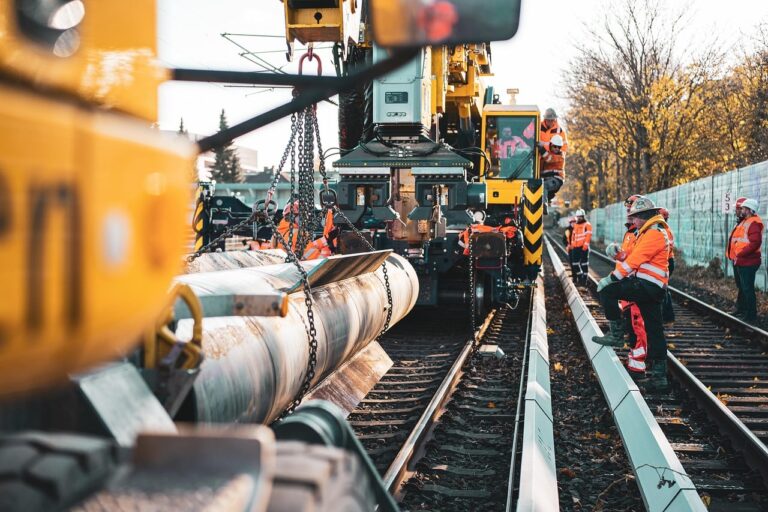The benefits of quieter construction sites
4 ways customised noise control helps improve the industry Construction sites are often associated with noise, machinery, and bustling activity. But today, recognising the advantages of quieter construction sites is becoming increasingly important. By adhering to Australian construction noise standards – particularly those set for Queensland – construction companies can improve health and safety, enhance…
4 ways customised noise control helps improve the industry
Construction sites are often associated with noise, machinery, and bustling activity. But today, recognising the advantages of quieter construction sites is becoming increasingly important.
By adhering to Australian construction noise standards – particularly those set for Queensland – construction companies can improve health and safety, enhance productivity, foster positive community relations, and keep their sites operational for extended hours.
In this article, we will explore the surprising benefits of quieter construction sites and how they contribute to a more sustainable and efficient construction industry.
1) Protecting worker health and safety
One of the primary advantages of quieter construction sites is improved health and safety for workers. Prolonged exposure to excessive noise can lead to various health issues, including hearing damage, increased stress levels, and reduced concentration.
To address this concern, the Australian Construction Noise Standard for Queensland (AS 2436-2010) sets guidelines to ensure that construction activities adhere to recommended noise limits during specific timeframes.
By adhering to these standards, construction companies can safeguard their workers’ wellbeing, and create a healthier work environment. This reduces the risk of occupational noise-related illnesses and promotes higher job satisfaction and overall employee morale.
2) Enhancing construction site productivity
A quieter construction site significantly enhances productivity. Excessive noise can be a major distraction for workers, making it difficult for them to concentrate on their tasks. By minimising noise levels, construction companies can create a more focused and efficient work environment.
Quieter sites also lead to better communication among workers, reducing the chances of errors, delays, and accidents. Clear instructions and effective coordination become easier when noise is minimised, allowing workers to complete tasks with greater accuracy and efficiency.
To assist in maintaining a quieter working environment, Flexshield offers a range of noise control products specifically designed for construction sites. For example, our Sonic Acoustic curtains and Sonic Acoustic quilts are popular choices that absorb noise and allow construction sites to operate even during nighttime hours. Collaborating with the noise control experts at Flexshield and referring to our Construction Checklist can help your construction company keep sites within regulated noise limits.
3) Promoting positive community relations
Construction sites are often situated near residential areas, which means excessive noise can cause disruptions and annoyance in the local community. Quieter construction sites demonstrate respect for the community’s wellbeing and contribute to positive community relations.
Adhering to Australian construction noise standards helps minimise noise pollution, making construction activities more bearable for nearby residents. This not only reduces complaints and potential conflicts, but also improves the construction company’s public image. Building positive relationships with the community can lead to future opportunities and increased trust, benefiting the company’s reputation and business prospects.
4) Ensuring compliance with Australian construction noise standards
In Queensland, construction companies are required to comply with the Australian Construction Noise Standard (AS 2436-2010), which outlines permissible noise levels and the allowed operating hours for construction activities. These standards establish specific noise criteria based on land use and time of day.
For example, in residential areas, construction noise should not exceed 45 decibels during the day (7 am to 7 pm) and 40 decibels during the night (7 pm to 7 am). By adhering to these standards, construction companies can ensure that their operations align with the legal requirements and promote a quieter working environment.
Quieter construction sites offer numerous benefits, including improved health and safety for workers, enhanced productivity, and positive community relations. Adhering to Australian construction noise standards, such as those set for Queensland, is crucial to achieving these benefits.
Get advice on the right noise control for construction sites
By minimising noise pollution and utilising appropriate noise control solutions, construction companies can create a healthier work environment, boost productivity, and foster positive relationships with the surrounding community. Emphasising health, safety, and productivity in construction practices not only benefits the workforce, but also contributes to a more sustainable and efficient construction industry.
Partnering with the experts in noise control solutions at Flexshield helps your construction company to meet the regulated noise limits and ensure a quieter construction site for improved outcomes.
For expert advice on the right noise control solutions for your facility, please contact Flexshield at
1300 799 969 or get in touch online.
Related Stories
-

Flexshield’s big month in industrial noise control – on the road from QLD to WA!
Taking action for hearing health and sustainable water management It’s been a busy month for the Flexshield team, and we’ve covered vast distances from Queensland to New South Wales, Victoria, and Western Australia. It’s been… -

The science behind tailored industrial noise control solutions for your project
7 key considerations for addressing noise pollution for your project When you’re managing noise on a job site, it’s important to understand the science behind industrial noise control and how to apply it effectively. Whether… -

World Hearing Day 2025: protecting workers’ hearing with Flexshield
Why prioritising hearing protection is essential for your workforce Each year on March 3rd, the World Health Organisation (WHO) marks World Hearing Day, raising awareness about hearing loss and promoting actions to protect auditory health….